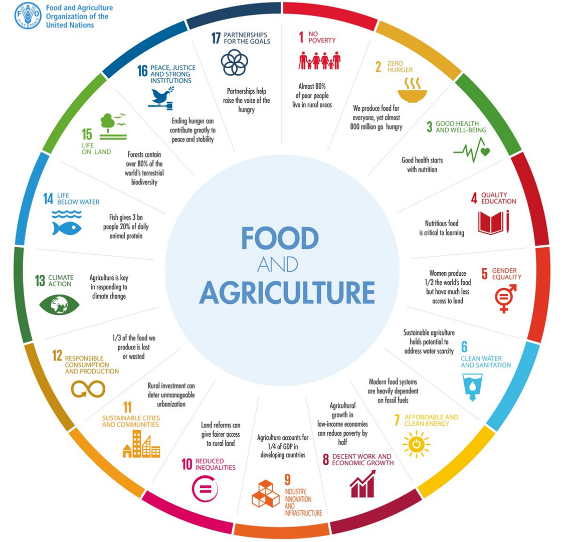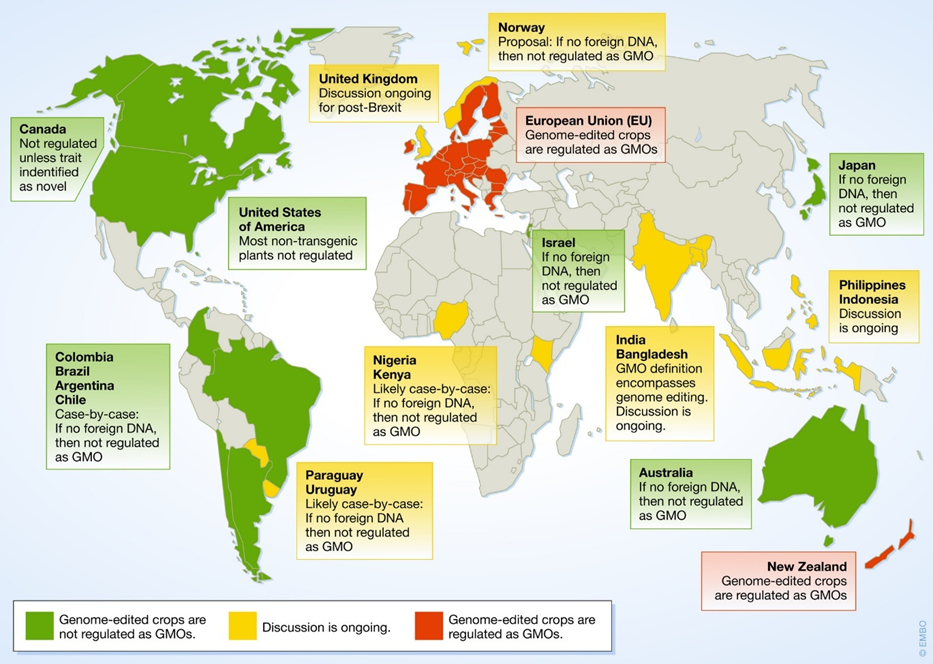Press Release
Agriculture and food production must become more sustainable in a world facing a rising, more affluent world population, climate change and environmental degradation.
The recently published Green Deal of the European Commission stated within the context of the ‘Farm to Fork’ strategy that the EU needs to develop innovative ways to reduce dependency on pesticides and fertilizers, reverse biodiversity loss while at the same time provide society with sufficient, nutritious, sustainable and affordable food. The strategy is in line with the importance of food and agriculture in achieving the United Nations’ Sustainable Development Goals (SDGs).

Besides achieving these goals, we need to develop a highly productive and sustainable recovery from the COVID-19 crisis, with an agriculture that is less dependent on imports from outside the EU.
However, setting the targets is not enough, we also need tools to help achieve these targets. All possible approaches, including innovative plant breeding technologies, are required to address these challenges and to achieve the ambitious goals of Farm to Fork strategy. The most recent addition to the toolbox to develop new crop varieties is precision breeding. This technology, also known as genome editing, allows scientists and breeders to develop desired crop varieties in a faster, relatively simple and much more directed way compared to previous breeding techniques. Precision breeding has far reaching applications such as increasing the diversity of crops, the reduction of pesticides, the further development of healthy food and many more.
A greater diversity of crop species is not only desirable, but of central importance for both sustainable agriculture and healthy nutrition. The use of more varieties of crop species is considered to increase the resilience to climate change. This diversity is especially important in a climate-smart approach because it contributes to pest and disease management, which has direct effect on yields and revenues.
Precision breeding can considerably reduce the dependency on pesticides by improving resistance against diseases, as illustrated in recent literature with the development of e.g. mildew resistant wheat, fungal resistant grapevine, fungal resistant rice, broad-spectrum bacterial disease resistant tomato, grapefruit resistant to citrus canker, rice resistant to bacterial blight.
Healthy food is the key to our healthy diets. Precision breeding accelerates the introduction of healthy traits into vegetables and fruits that we currently consume, e.g. high-fiber wheat14, low-acrylamide potato, low gluten wheat, increased contents of beneficial secondary metabolites, reduced contents of allergens and toxic heavy metals in cereals, legumes and oilseeds.
Development of beneficial crop varieties in a faster and much more directed way is however halted in Europe, while the rest of the world embraces the technology.
The ECJ ruling of 25 July 2018 in case C-528/1624, which is widely interpreted to subject genome-edited plants to the general restrictive provisions of the European GMO legislation, in fact is preventing the use of this technology for crop improvement in Europe.
 The regulatory approach for genome-edited crops in Europe is completely out of line with the regulations existing in other continents across the world that have adopted more ‘fit for purpose’ regulations. The lack of regulatory harmonization worldwide poses challenges in global trade and in the seed sector and it hampers the innovation and scientific progress in Europe, which is very much needed for achieving Sustainable Development and Green Deal Goals.
The regulatory approach for genome-edited crops in Europe is completely out of line with the regulations existing in other continents across the world that have adopted more ‘fit for purpose’ regulations. The lack of regulatory harmonization worldwide poses challenges in global trade and in the seed sector and it hampers the innovation and scientific progress in Europe, which is very much needed for achieving Sustainable Development and Green Deal Goals.
The figure below adopted from Schmidt et al. provides a global overview of the regulatory approaches currently implemented or discussed in different countries for genome-edited crops (SDN-1 and SDN-2 applications).



 Share
Share